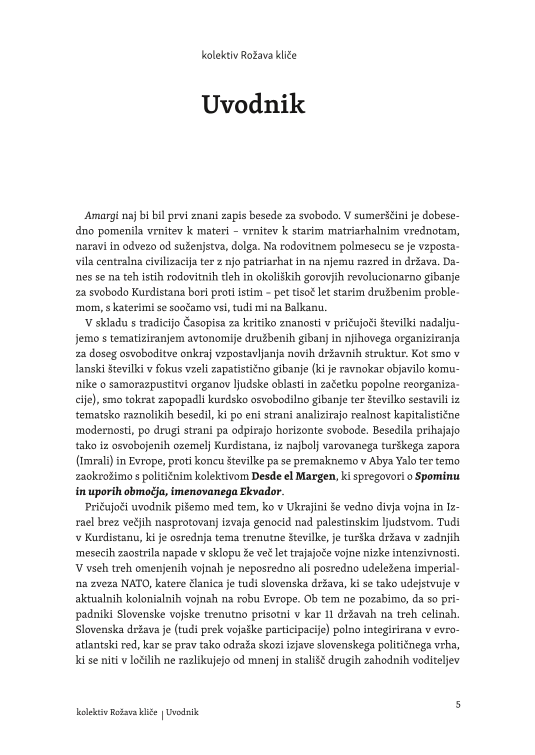Amargi is said to be the first known record of the word for freedom. In Sumerian it literally meant a return to the mother - a return to the old matriarchal values, to nature and freedom from slavery and debt. On the fertile crescent a central civilisation was established, and with it patriarchy, which brought class and the state. Today, on the same fertile soil and the surrounding mountains, the revolutionary movement for the freedom of Kurdistan is fighting the same - five thousand years old - social problems that we all face, including here in the Balkans.
In the tradition of the Journal for the Critique of Science, in this issue we continue our thematisation of the autonomy of social movements and their organisation to achieve liberation beyond the establishment of new state structures. Just as in last year's issue we focused on the Zapatista movement (which has just published communiqués on the self-abolition of the organs of popular power and the beginning of a complete reorganisation), this time we have taken up the Kurdish liberation movement and composed the issue with thematically diverse texts that, on the one hand, analyse the realities of capitalist modernity and, on the other, open up horizons of freedom.




